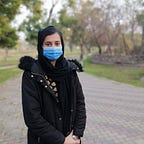Sheikh Mujibur Rahman Legcy
Sheikh Mujibur Rahman, also known as Bangabandhu, was a Bangladeshi politician and statesman. He is considered the founding father of Bangladesh, as he played a key role in the country’s struggle for independence from Pakistan.
Born in 1920 in East Bengal, British India (present-day Bangladesh), Rahman was educated at the University of Dhaka and began his political career as a member of the Muslim League, the party that would later lead Pakistan. However, he quickly became disillusioned with the Muslim League’s policies and in 1949, he joined the Awami League, a Bengali nationalist party.
In the 1950s and 1960s, Rahman emerged as a leader of the Bengali nationalist movement in East Pakistan, which was demanding greater autonomy and more equitable distribution of resources between East and West Pakistan. He was arrested several times for his political activities but continued to lead the movement through the Awami League.
In 1970, the Awami League, under Rahman’s leadership, won a landslide victory in the national elections in East Pakistan. However, the Pakistani government, led by Yahya Khan, refused to transfer power to the Awami League, leading to a civil war between East and West Pakistan.
In 1971, the Pakistani army launched a brutal crackdown on the Bengali population in East Pakistan, killing an estimated 3 million people and causing an estimated 10 million to flee to India as refugees.
Despite the violence, Rahman refused to give up the struggle for independence, and in 1971, he declared the independence of Bangladesh. He was arrested by the Pakistani army and held in prison until the end of the war, when Bangladesh achieved independence with the help of the Indian army.
After independence, Rahman became the first Prime Minister of Bangladesh, serving from 1972 to 1975. During his time in office, he implemented a number of social and economic reforms, including land reform, the nationalization of key industries, and the establishment of a secular democracy.
Unfortunately, in 1975, Rahman and most of his family were killed in a military coup. The coup was led by a group of junior army officers who were unhappy with the government’s policies.
Despite his tragic end, Rahman’s contributions to the independence of Bangladesh and the country’s development have not been forgotten. He is widely revered as a national hero in Bangladesh, and his birthday, March 17th, is a national holiday.
The legacy of Sheikh Mujibur Rahman continues to be felt in Bangladesh, as his ideas and policies continue to shape the country’s politics and society. His contributions to the independence of Bangladesh and the country’s development have not been forgotten. He is widely revered as a national hero in Bangladesh, and his birthday, March 17th, is a national holiday.
In conclusion, Sheikh Mujibur Rahman was a political leader who played a key role in the independence of Bangladesh. He was a charismatic leader who led the Bengali nationalist movement in East Pakistan and fought for greater autonomy and more equitable distribution of resources between East and West Pakistan. Despite the violence and repression, Rahman refused to give up the struggle for independence, and in 1971, he declared the independence of Bangladesh. He served as the country’s first Prime Minister, implementing a number of social and economic reforms before being killed in a military coup in 1975. His legacy continues to be felt in Bangladesh, where he is remembered as a national hero.
